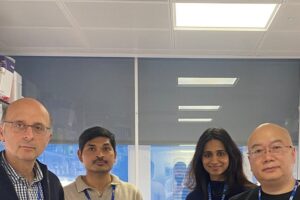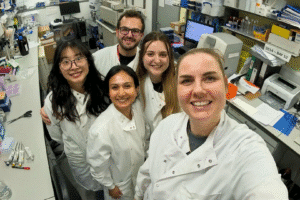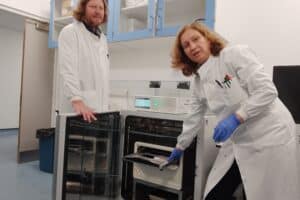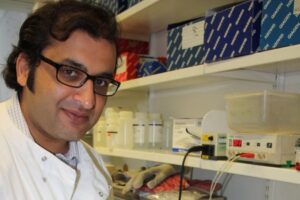Research
Immunotherapy for infant and childhood MLL-rearranged acute lymphoblastic leukaemia
Young children with mixed lineage leukaemia rearranged infant acute lymphoblastic leukaemia (MLLriALL) still have a very poor prognosis. While CAR T-cell therapy – a new type of treatment that uses the body’s own defences against cancer – is very effective against certain types of leukaemia, it has been challenging to treat MLLriALL this way. Dr Anindita Roy and her team aim to overcome these challenges by developing a modified form of CAR T-cell therapy that is effective against MLLriALL. They hope it will be ready for clinical trials when the project ends in three years, so that it can start improving outcomes for patients.
This project is co-funded with Cancer Research UK as part of the Cancer Research UK–Children with Cancer UK Innovation Awards. Children with Cancer UK has contributed £390,595.04 towards this research project, the total cost of the project is £781,190.07
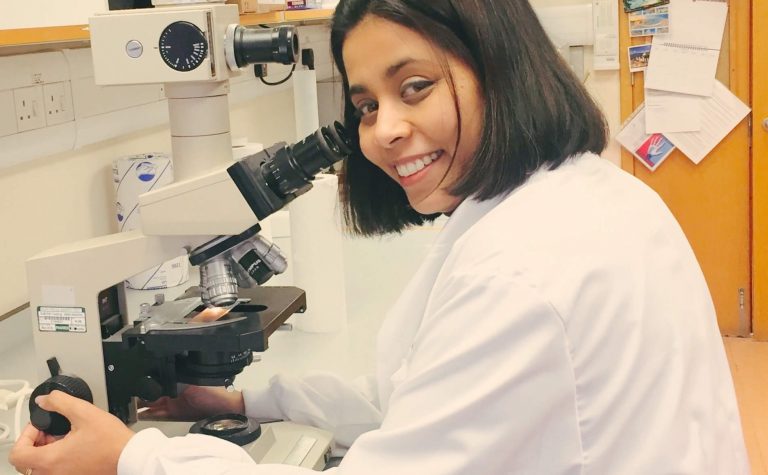
Project Details
- Improving immunotherapies for the treatment of leukaemia
- Lead Researcher
- Dr Anindita Roy and Professor Anastasios Karadimitris
- Research Centre
- University of Oxford and Imperial College London
- City & Institution Postcode
- Oxford, OX1 2JD; London, SW7 2BU
- Start Date
- —
- Project Duration
- 36 months
- Grant Amount
- £781,190.07
Overview
Some forms of the blood cancer leukaemia have a very poor prognosis, and Mixed Lineage Leukaemia (MLL or KMT2A) gene rearranged infant acute lymphoblastic leukaemia (MLLr-iALL) is one of them. While immunotherapy – a new type of treatment that uses the body’s own defences against cancer – is very effective against certain types of leukaemia, it currently isn’t as successful at treating MLLr-iALL.
Chimeric antigen receptor (CAR) therapy is a form of immunotherapy that uses genetically modified T-cells, called CAR-T-cells, to treat leukaemia. However, a major limitation of this treatment for children with MLLr-iALL is that it requires T-cells to be taken from the patient, manipulated outside of their body and then injected back into them. Obtaining these cells from young children is difficult, especially after they have already gone through intensive chemotherapy to treat their cancer. A better alternative is essential.
The research team led by Dr Anindita Roy and Prof A Karadimitris aims to develop a new approach for treating MLLr-iALL, one that can be used off the shelf and is more effective than CAR-T therapy. This treatment is CAR-invariant natural killer T cell therapy, or CAR-iNKT for short. The team plan to design a way to make it effective against MLLr-iALL by targeting specific markers identified on iALL leukaemic cells. They hope it will be ready for clinical trials by the time the project ends in three years, so that it can start improving outcomes for children with the disease.
Potential impact
Leukaemia is the most common cancer affecting children, and acute lymphoblastic leukaemia comprises around 80% of all cases of leukaemia in children. Many treatments for the disease are too toxic for children, so by providing a less toxic alternative, this study has the potential to reduce the long-term side effects suffered by survivors of the disease. By trying to create a more effective treatment, the team also hopes to improve the chances of survival in a subtype of leukaemia for which those diagnosed have a very poor prognosis.
About the Research Team
Dr Anindita Roy is an associate professor of paediatric haematology at the University of Oxford. Her research focuses on understanding the origins of childhood leukaemia.
Professor Anastasios Karadimitris is a professor of haematology at Imperial College London. His research focuses on the role of the immune system in cancer.
Animal research:
The research project involves the use of mice in experiments.
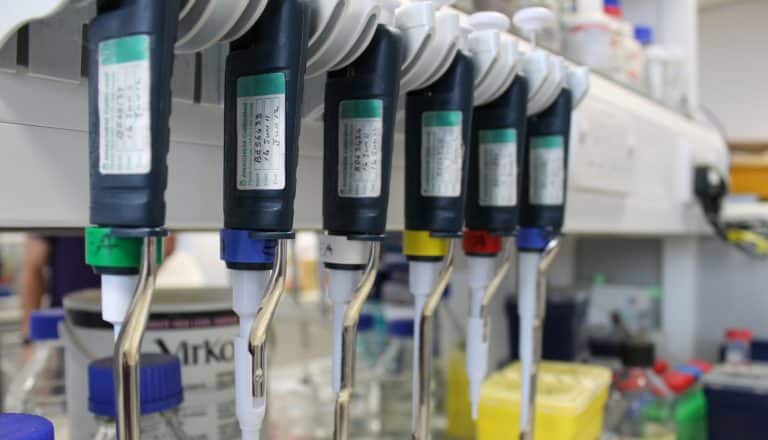
Other stories
We have lots of information to help you learn more about childhood cancer. From specific cancer types, to treatments and causes.
